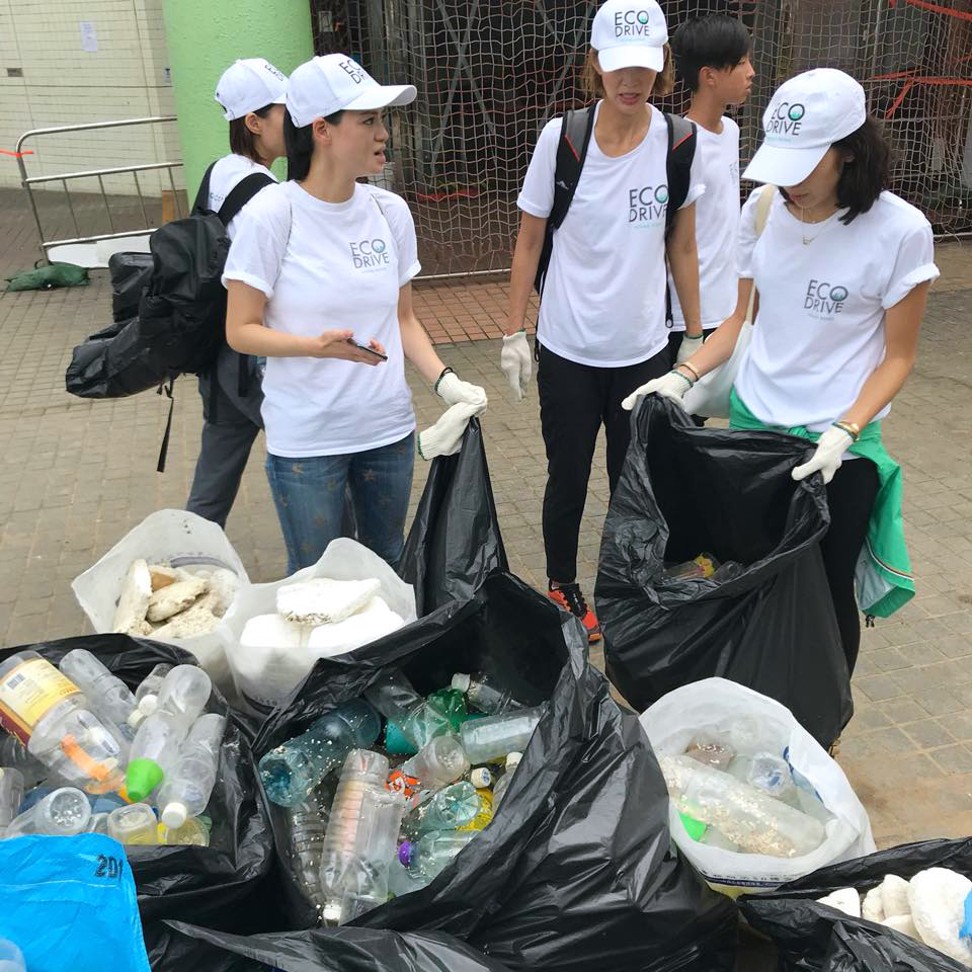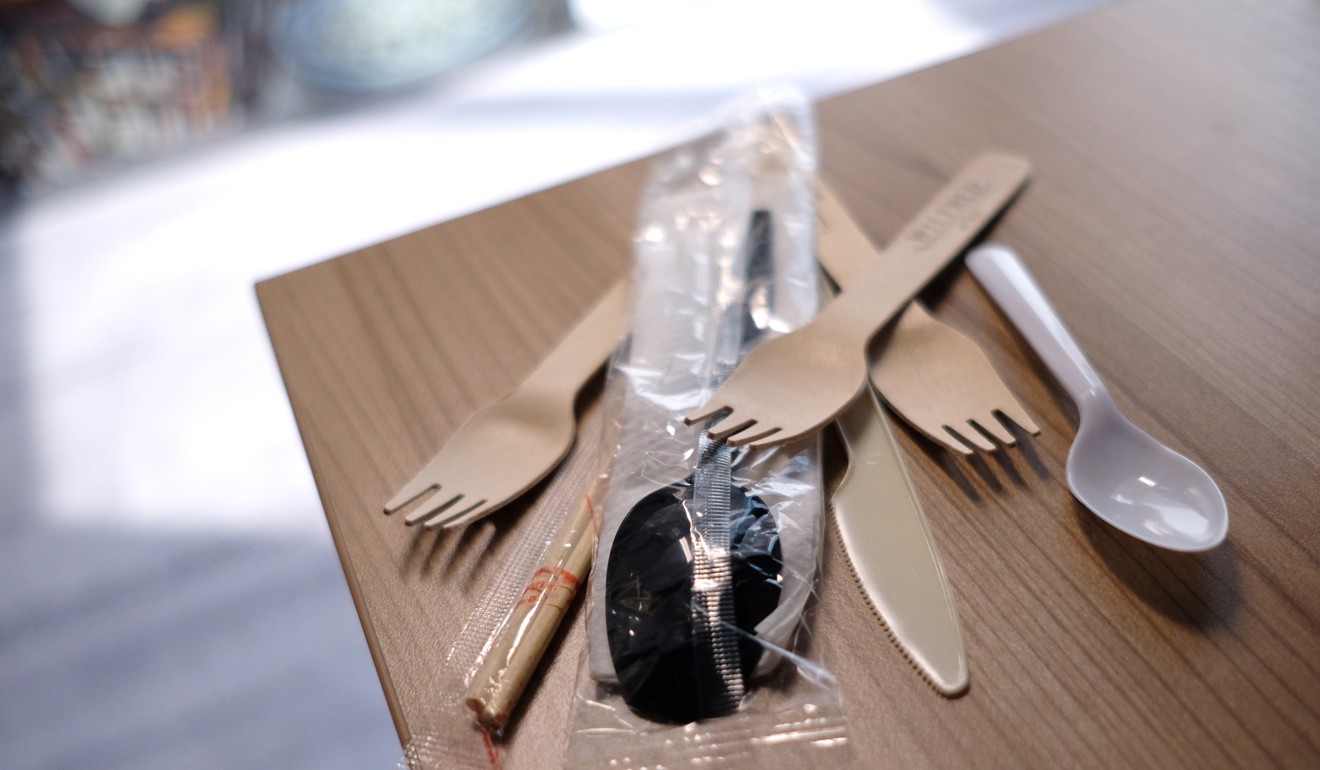
All I want for Christmas … is an end to the global plastic calamity
- This festive season, let's make the right choices for the environment
If the fact that Hong Kong throws away 5.2 million plastic water bottles every day, some 17 million pieces of waste plastic are flushed into the sea, and about 760 tonnes of plastic bags are disposed of daily does not shock you, maybe this will: there is more microplastic in the ocean than there are stars in the Milky Way.
Big festivals such as Christmas are always a nightmare for the environment because excessive consumption generates thoughtless wastage on an annual basis.
During this time of the year, many people tend to throw caution to the wind and go all out to splurge on the most expensive presents, cook the most sumptuous festive meal or book the most extravagant holidays. What should be the most wonderful time of the year has sadly turned into the most horrible time of the year for our planet, and for what purpose? Because we choose to blindly follow the decaying culture of Christmas consumerism to satisfy our misguided sense of obligation, which is to fit in with the modern festive rituals of shopping and partying.
Christmas has effectively lost its true meaning over the years as people tend to associate the amount of money they spend on gifts and frivolous festive activities as a measure of their love and affection for their loved ones.
But it does not have to be this way; we should make more environmentally sensitive consumption choices.
A group of 11 mothers is taking the lead to fight for and protect the environment from plastic pollution caused by thoughtless consumption of single-use plastics. The women, who come from a broad background, including self-starters, lawyers and entrepreneurs, established EcoDrive, a non-profit organisation, earlier this year in order to make the city more liveable for their children and future generations.
Besides an increase in plastic waste at Christmas, there will also be countless tonnes of rubbish, such as wrapping paper and other forms of packaging being thrown out and buried in landfills while Christmas jingles slowly fade out.

EcoDrive is focusing its efforts on education and reducing the consumption of single-use plastics in Hong Kong. Their efforts dovetail with the aims of the Waste Disposal (Charging for Municipal Solid Waste) (Amendment) Bill, which will be tabled for discussion on January 7. The group is eager to put a spotlight on the bill so that the public will be shown the full picture by learning about all the pros and cons.
Without a doubt, any sensible person will agree that we are being drowned by the rapid proliferation of plastic waste, and if nothing is done quickly, the global plastic calamity will eventually kill the planet.
EcoDrive’s current efforts will hopefully benefit from a EU plan, passed on December 19, to ban single-use plastic products such as disposable plates and straws. Member states and the European Parliament still have to confirm the provisional agreement for the directive to go ahead.
This latest milestone will almost certainly make the European Union a world leader in using sustainable alternatives to prevent or minimise marine pollution.
Under the plan, there will be a ban on plastic products where alternatives are readily available and affordable, such as plastic cotton buds, cutlery, plates, straws, drink stirrers and sticks for balloons.
It also shifts the responsibility onto member states to implement measures to reduce the use of plastic food containers and drink cups, while producers will have to help cover the costs of waste management and clean-up.
Another benchmark is to require member states to collect 90 per cent of single-use plastic drink bottles by 2025. Meanwhile, certain products such as sanitary towels, wet wipes and balloons will have to have clear labelling to indicate methods of proper disposal. All in all, the principle is to emphasise ethical behaviour to restrict further uncontrollable plastic pollution.
On the education front, member states will be required to raise consumer awareness about the negative impact of littering and the widespread availability of reuse and waste management options.
The agreement, hailed as “the world's first comprehensive plastics strategy”, will put Europe's businesses and consumers in a proactive position to help tackle a long-existing problem with global implications.

The ban is expected to go a long way towards effectively reducing the number of single-use plastic items so as to avoid dangerously affecting our oceans, our bodies and also our economy. It has been proposed that the EU-wide rules should come into effect next May due to the urgency of the issue – 80 per cent of sea waste is believed to be plastic.
Karmenu Vella, the EU's Commissioner For Environment, Maritime Affairs and Fisheries, summed it up perfectly with dark and ominous humour.
“When we have a situation where one year you can bring your fish home in a plastic bag, and the next year you are bringing that bag home in a fish; we have to work hard and work fast.”
Luisa Tam is a senior editor at the Post

